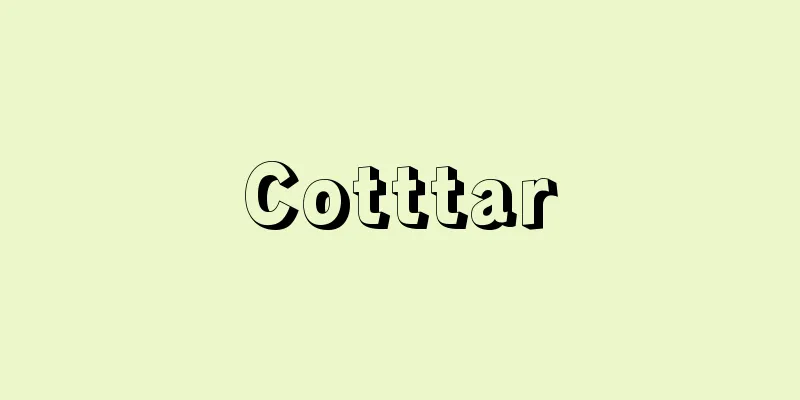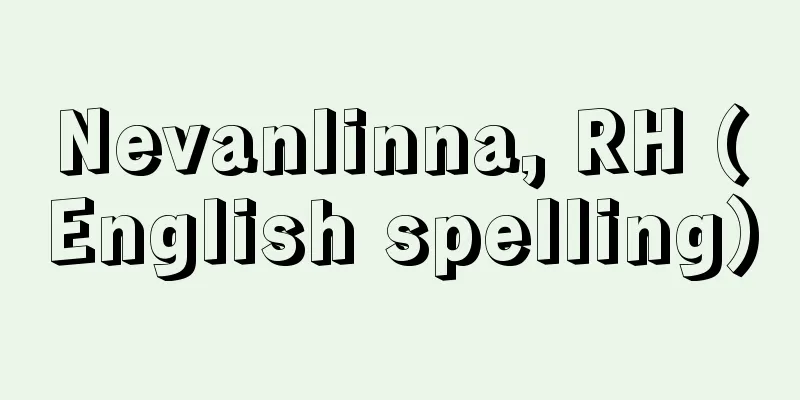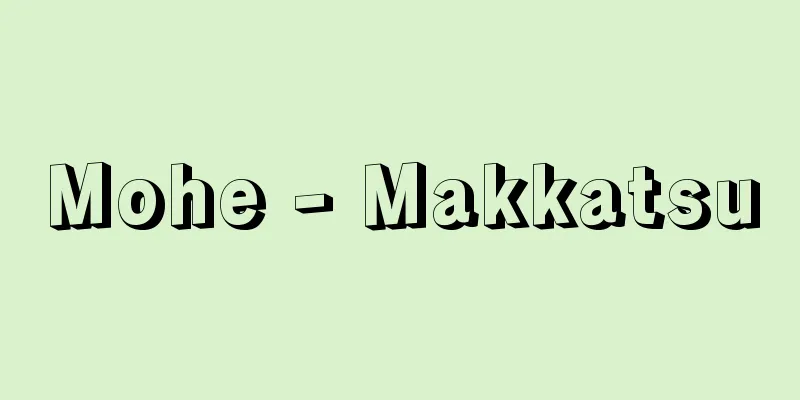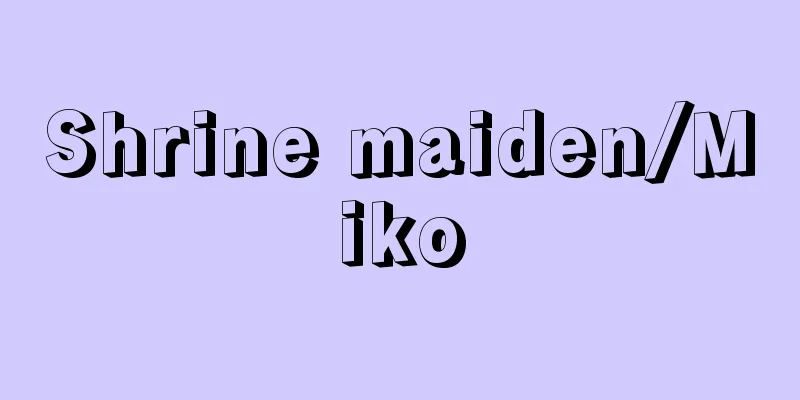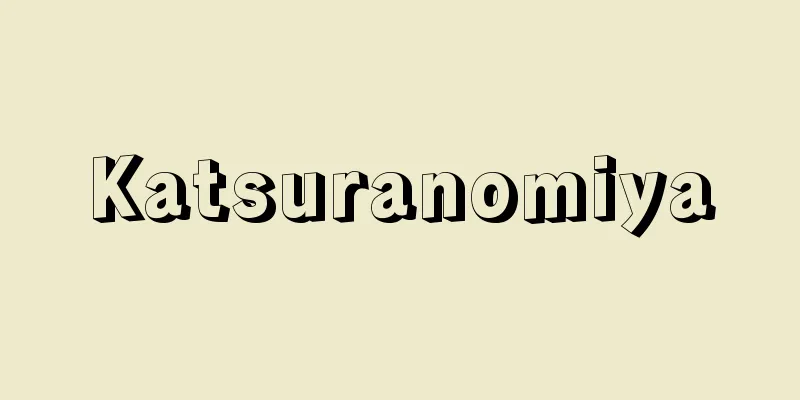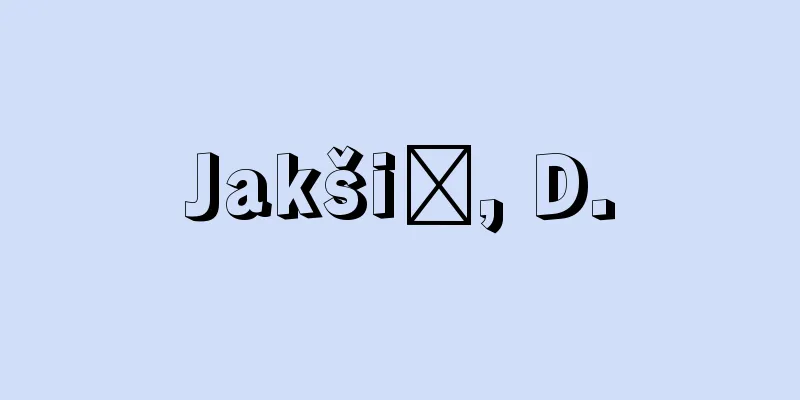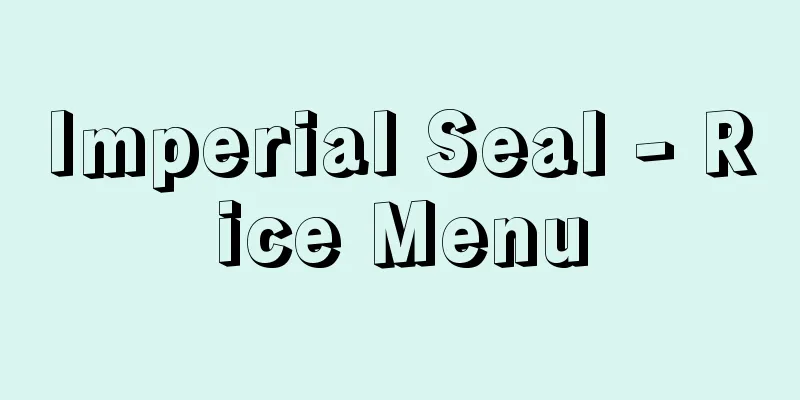Production - Seisan (English spelling) production
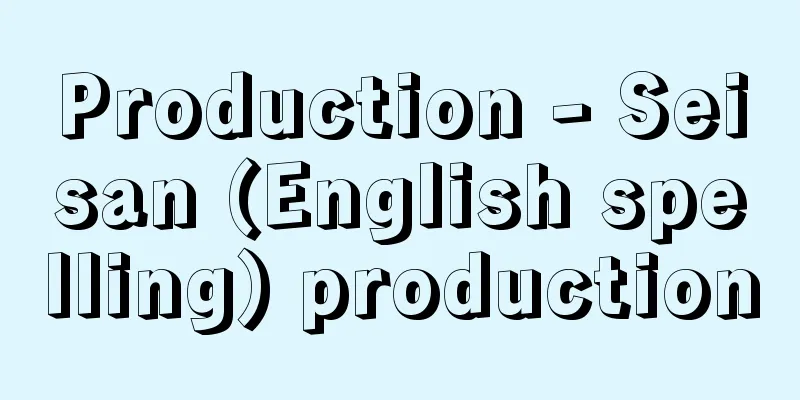
|
It is the economic act of producing the goods and services necessary for human life. Economics is divided into two views depending on whether the provision of services is also considered production. [Tetsuya Hitosugi] Material production and utility productionThose who primarily support the labor investment theory of value see only material production as production, and therefore consider the material production sectors, such as agriculture, forestry, fisheries, mining, manufacturing, and construction, and the material distribution sectors, such as transportation, warehousing, and communications, that are directly connected to these, to be production sectors. Labor that produces these products is productive labor, and other labor, which is primarily labor that provides services to other people, is called unproductive labor. This view is based on the view that the economy is the action of humans exerting their labor power, using machines, tools, and other means of production to affect nature and obtain the materials necessary for human life. If we then view the economy as an infinitely repeating circular process of production → distribution → consumption/accumulation → production, the rules of distribution are determined by how people relate to production, and people can only consume and accumulate once they have received their share, so production is the fundamental and basic act of the economy. In contrast, those who primarily adhere to the subjective theory of value consider the provision of services to be production as well. This is because production is carried out to satisfy human desires, and they see the economic cycle as a repetition of consumption/accumulation → production → distribution → consumption/accumulation, and believe that only the goods and services that humans directly or indirectly desire are produced. In this case, the question arises as to why the production of means of production themselves that are not directly used to satisfy needs, i.e., accumulation, takes place. The answer to this is roundabout production. If, instead of consuming all the products that can be produced in a given period, some of them are accumulated as indirect means of production, then direct consumer goods can be produced more efficiently by using them in the next production stage. The advantages of this kind of roundabout production are the "benefits of roundabout production." [Tetsuya Hitosugi] Factors of ProductionGoods or services essentially required for production are called factors of production, and according to the traditional classical economics classification, they are classified into three: labor, land, and capital. This classification was based not on the collaboration of production factors in the production process, but rather on the distribution of class income to the three major classes in England at that time, with wages for labor, rent for land, and interest and profits for capital. However, the current view focuses on production, and the three factors of production are labor, land, and capital goods. Labor is the service provided by labor, land includes not only land as an expanse of land, but also all natural resources, climate, and climate necessary for production, and capital goods refer to tools, machines, equipment, raw materials, fuel, and power. Labor and land are called essential production factors due to their nature, and capital goods are called produced means of production. On the other hand, there is a school of thought that counts entrepreneurial ability as one of the production factors in contrast to this classification. In this case, the reward for entrepreneurial ability is considered to be corporate profits. However, if there is a scarcity of entrepreneurs with entrepreneurial ability, corporate profits will not disappear even in a static, simple reproduction state where innovation and competition have reached their limit, but in that case corporate profits should also be called entrepreneurial wages. Also, in a socialist society that denies private property, even if corporate profits exist, they do not belong to entrepreneurs, so entrepreneurial ability cannot be considered one of the production factors. [Tetsuya Hitosugi] [Reference item] |Source: Shogakukan Encyclopedia Nipponica About Encyclopedia Nipponica Information | Legend |
|
人間生活に必要な物資・用役をつくりだす経済的行為のこと。用役(サービス)の提供をも生産とみるかどうかで、経済学の見方は二つに分かれる。 [一杉哲也] 物的生産・用役生産主として投下労働価値説にたつ人々は、物的生産のみを生産とみるので、農林水産業・鉱業・工業・建設業などの物的生産部門と、それに直結する運輸業・倉庫業・通信業などの物的流通部門が生産部門であるとしている。これらの生産物を生み出す労働が生産的労働であり、これ以外の主として人が人にサービスを提供する労働は不生産的労働とよばれる。 この見方は、経済とは人間が労働力を発揮して、機械・道具などの生産手段を用いて自然に働きかけ、人間生活に必要な物資を獲得する行動であるとする経済観に基づいている。ついで経済を生産→分配→消費・蓄積→生産という、無限に繰り返される循環過程としてみるとき、生産に人々がどう関係しているかによって分配のルールが決まるし、分配分を得て初めて人々は消費・蓄積できるのだから、生産は経済の本源的・基礎的行為であることになる。 これに対して、主として主観価値説にたつ人々は、用役(サービス)の提供も生産とみる。これは、生産が人間の欲求充足のために行われるのであり、経済循環を消費・蓄積→生産→分配→消費・蓄積の繰り返しとみて、人間が直接・間接に欲求する物資・用役だけが生産されるとみているのである。 この場合、直接、欲求充足に用いられない生産手段そのものの生産、すなわち蓄積がなぜ行われるかが問題となろう。これに対する答えが迂回(うかい)生産である。ある期間において生産可能な生産物すべてを消費してしまわないで、その一部を間接的な生産手段として蓄積すれば、次の生産段階でそれを利用することによって、直接的な消費物資がより能率的に生産できる。こうした回り道的な生産の有利さが「迂回生産の利益」である。 [一杉哲也] 生産要素生産に本源的に必要とされる財あるいは用役は生産要素とよばれ、伝統的な古典派経済学の区分に従えば労働・土地・資本の三つに分類される。この分け方は、生産要素が生産過程で協働する点ではなく、むしろ労働に賃金、土地に地代、資本に利子および利潤というように、当時のイギリスの三大階級に階級所得が分配される点にその視点を置いていた。しかし現在では生産に視点を置いて、労働力・土地・資本財を生産の三要素とする考え方がとられるようになった。労働力は労働が提供する用役であり、土地は大地の広がりとしての土地だけでなく、生産に必要なすべての自然資源・気候・風土などを含み、資本財は道具・機械・設備・原材料・燃料・動力などをさしている。また、労働と土地はその性格上、本源的生産要素とよばれ、資本財は生産された生産手段とよばれる。 一方、このような区分に対して、企業者能力を生産要素の一つに数える考え方がある。そこでは企業者能力に対する報酬は企業利潤とされる。しかし、もし企業者能力をもつ企業者に希少性があるならば、革新と競争が行き着いた静態的・単純再生産的状態でも企業利潤は消滅しないが、そのとき企業利潤は企業者賃金ともよばれるべきものとなる。また私有財産制を否定する社会主義社会においては、企業利潤は存在しても、それは企業者には帰属しないから、企業者能力を生産要素の一つとすることはできないとされている。 [一杉哲也] [参照項目] |出典 小学館 日本大百科全書(ニッポニカ)日本大百科全書(ニッポニカ)について 情報 | 凡例 |
>>: Constellation Quick Guide - Seiza Hayami
Recommend
Akenokane - Bell of Dawn
Nagauta. The lyrics and composer, and the date of ...
White paper
A publication issued by each government ministry ...
Impeller
...A rotating body consisting of multiple blades ...
Space flight - uchuuhikou (English spelling) space flight
Flying in space, i.e. outside the Earth's atmo...
Elevation - height above mean sea level
Also called altitude above sea level. Height above...
Kamakura Library
...In 1940, publishing control was strengthened, ...
Patchwork - Patchwork (English spelling)
Patch means to patch, gather, or piece. It also r...
Wu-yong-zhong (Dance Mound)
A Goguryeo mural tomb in Ji'an County, Jilin P...
Ninami Dohachi
Year of death: 1855 (2nd year of the Ansei period)...
Alpha Ridge
…The names of the landforms and the depths of the...
Altan Khan (Chief of the Khotgoyt Tribe)
...17th century Khotgoit chieftain of northwester...
Tibetan script - Tibetan characters
The script used for Tibetan. It consists of 30 con...
Żeleński, W.
...We cannot ignore the famous violinist Karol Jó...
Garter Edition - Garter Knitting
A garter is a type of knitting technique in which ...
Green Belt
In the broad sense, it refers to a continuous stri...

